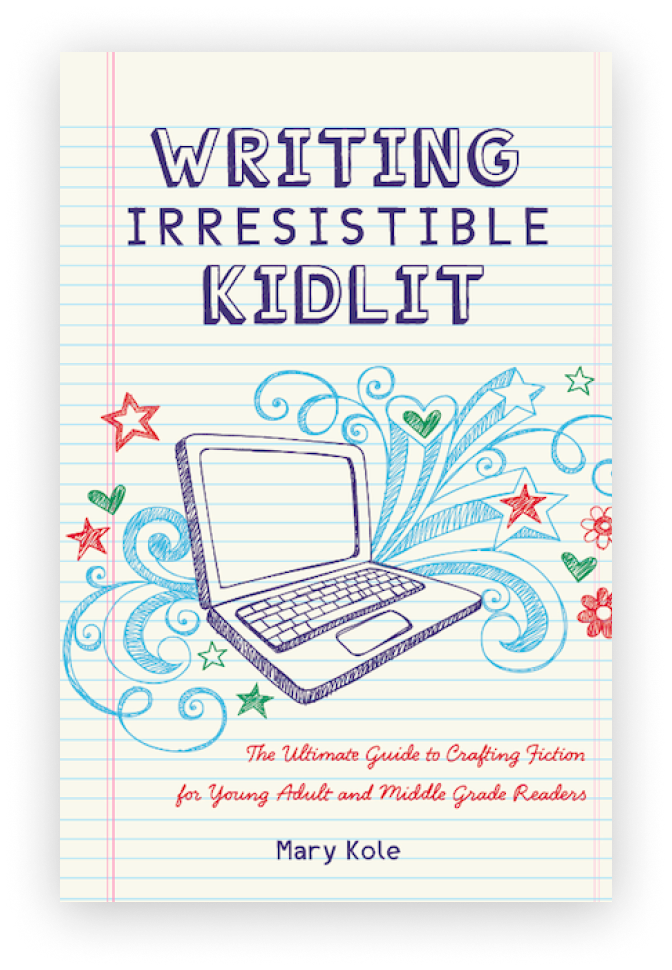How to Find Your Unique
Writing Style
By Mary Kole
Mary Kole is a former literary agent, freelance editor, writing teacher, author of Writing Irresistible Kidlit, and IP developer for major publishers, with over a decade in the publishing industry.
As an aspiring writer, finding your own unique voice and writing style can feel like an impossible task. With so many established authors and genres out there, it can be difficult to carve out your own niche in the publishing industry, or directly with readers, if you’re self-publishing. However, developing your own writing style is essential if you want to stand out from the crowd and create work that truly resonates with your target audience. In this article, I’ll take a dive into what defines a writing style for an aspiring writer, including actionable advice for what comprises writing style and voice, fresh tips for developing your style, and some crucial encouragement for the long road ahead.
What Is a Writing Style?
Before you can begin developing your own writing style, it's important to understand what this term actually means. A writing style is essentially the way in which an author writes—their unique writing voice, tone, word choice, syntax, story idea, and way of expressing themselves on the page.
Some common components of a writing style include use of metaphor and simile and other writing imagery, sentence length and structure, and use of dialogue. However, your writing style is ultimately a reflection of you as a writer and individual.
Developing Your Writing Style
Now that you've got a grasp on what a writing style actually is, it's time to develop your own. While this can often feel like a daunting task, the key is to approach it with a curious, open mind, and to practice, practice, practice. You’ll also do well to start reading like a writer. Try out different styles and techniques, experiment with sentence structure and word choice, and don't be afraid to make mistakes along the way.
One key tip for developing your writing style is to read widely inside your category and genre, as well as outside of it. Expose yourself to a range of genres and styles, paying attention to what resonates with you as a reader and what doesn't. These lessons will eventually filter down to your own writing. By doing so, you'll be able to identify the common threads that link various authors and styles together, and use that knowledge to inspire your unique writing style.
Developing a Voice and Writing Style
There are a number of key elements that come together to create a writing style and voice. First and foremost, your writing should reflect your own unique perspective and personality. Whether you're writing fiction or nonfiction, it's important to infuse your work with your own individual point of view, not just in narrative terms, but in terms of worldview, perspective, life experience, and so on.
Another important component of writing style is the use of description and imagery. Think about how you want to convey scenes and emotions to your readers, and experiment with different ways of doing so. Are you drawn to lyrical, poetic prose, or do you prefer a more straightforward, journalistic approach to crafting a narrative?
Ultimately, the key to developing your writing style is to find the balance between honing your craft and staying true to your own individual voice and vision.
Fresh Tips for Developing Your Writing Style
In addition to reading widely and experimenting with different styles, there are a number of other ways you can develop your own writing style. One key tip is to pay attention to the way you speak. Try to infuse your writing with the same rhythms and cadences as your own voice—after all, your writing should sound like you, literally and figuratively.
Another helpful tactic is to keep a writing journal where you can do stream of consciousness writing or freewriting in a less structured setting. This can be a space where you can experiment with different styles and techniques, without the pressure of having to create a polished, revised, and finished piece. By doing so, you can give yourself the freedom to play and explore, allowing your writing style to evolve and grow over time.
Developing your own writing style is a challenging but ultimately rewarding endeavor. By staying true to your own unique perspective and personality, experimenting with different styles and techniques, and reading widely, you'll be well on your way to creating work that is truly your own. Remember, the journey to developing your writing style is a long and winding one, but with patience and perseverance, you'll get there eventually. As with a lot of other disciplines in writing and publishing, the goal is to enjoy the process.

Click here to purchase Writing Irresistible Kidlit, my book on fiction craft for MG and YA novels, out from Writer's Digest Books. This will show you my writing craft philosophy and give you lots of valuable advice, including tips for the novel revision process and self-editing. There are over 35 example novels cited and discussed throughout. It’s a valuable resource for any writer’s toolkit.
Click here to purchase Irresistible Query Letters, my book on query letters, including over forty examples with comprehensive notes on each one. There’s a ton of submission advice, best practices, and insider information in these pages, and you’ll really enjoy seeing what other writers are doing in the slush.
Click here to purchase Writing Interiority: Crafting Irresistible Characters, my book on interiority and character creation. Explore your protagonist’s thoughts, feelings, reactions and interpretations, expectations, and inner struggles to create a rich, immersive experience. This guide will empower you to create characters who live and breathe on the page, fostering an unbreakable bond with your audience.





